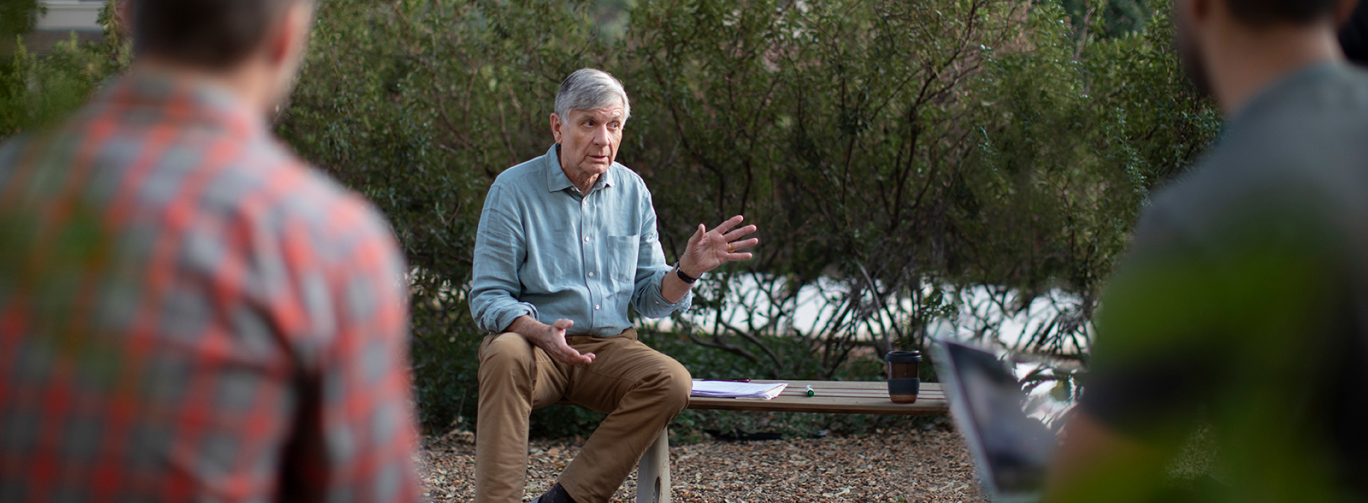
After 40 years on campus, Prof. Nicholas Warner extols the CMC culture
When Prof. Nicholas Warner joined the CMC faculty in 1980, students didn’t have cell phones or laptops, and there were no social media platforms.
As Warner recently observed, while technology has transformed our lives over the past four decades, what’s remained the same is the College’s collegial sense of community.
“The biggest changes have been in the world and in the society around us,” said Warner, who has taught courses in Russian, American and English literature since his first year at CMC. “But the College’s atmosphere, its blend of efficient professionalism with personal warmth, has remained surprisingly consistent over the years. I feel that today, just as I did 40 years ago.”
“For me, teaching is a two-way street, you meet the students halfway and they meet you halfway.”
For example, he said, “I can call the registrar’s office, and the staff know my voice and I know theirs. You don’t have to be here for 40 years, or even four years, for this kind of relationship to develop.”
Warner earned his BA from Stanford University and his Master’s and PhD in English from UC Berkeley, and he taught for two years at Oberlin College before arriving at CMC. In addition to literature classes, Warner also teaches courses on the western and war film genres.
He has received a total of eight Glenn R. Huntoon or G. David Huntoon teaching awards over a span of 30 years, winning the first of these awards in 1983, and the eighth in 2013.
He has also served CMC as the Interim Vice President of Academic Affairs and Dean of the Faculty, as well as the Associate Dean of Faculty and Director of the Freshman Humanities Program.
CMC students, he said, share certain qualities. “I find our students have a friendly, outgoing, down-to-earth attitude. For me, teaching is a two-way street, you meet the students halfway and they meet you halfway. I feel very much that at CMC the students and faculty are working together toward a common goal.”
“The friendships and the relationships with students that begin here don’t end at commencement, they continue long after,” he said. “And I’m grateful for that.”
—Anne Bergman

